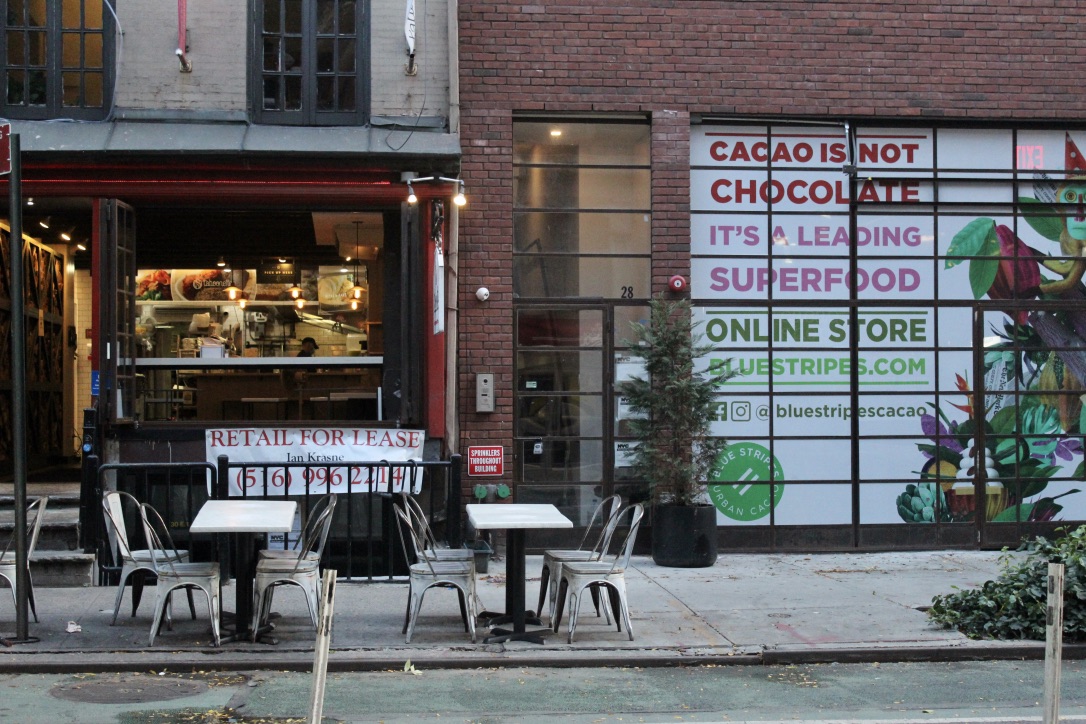As summer temperatures cool, New Yorkers can dine inside for the first time since Mar. 16. But with restaurants operating indoors at a smaller volume, diners are not returning to New York restaurants’ intimate past. On Sept. 30, New York City restaurants reopened for indoor dining at 25% capacity, a guideline set by the state.
Restaurants will now be held accountable by their customers to maintain the capacity limit.
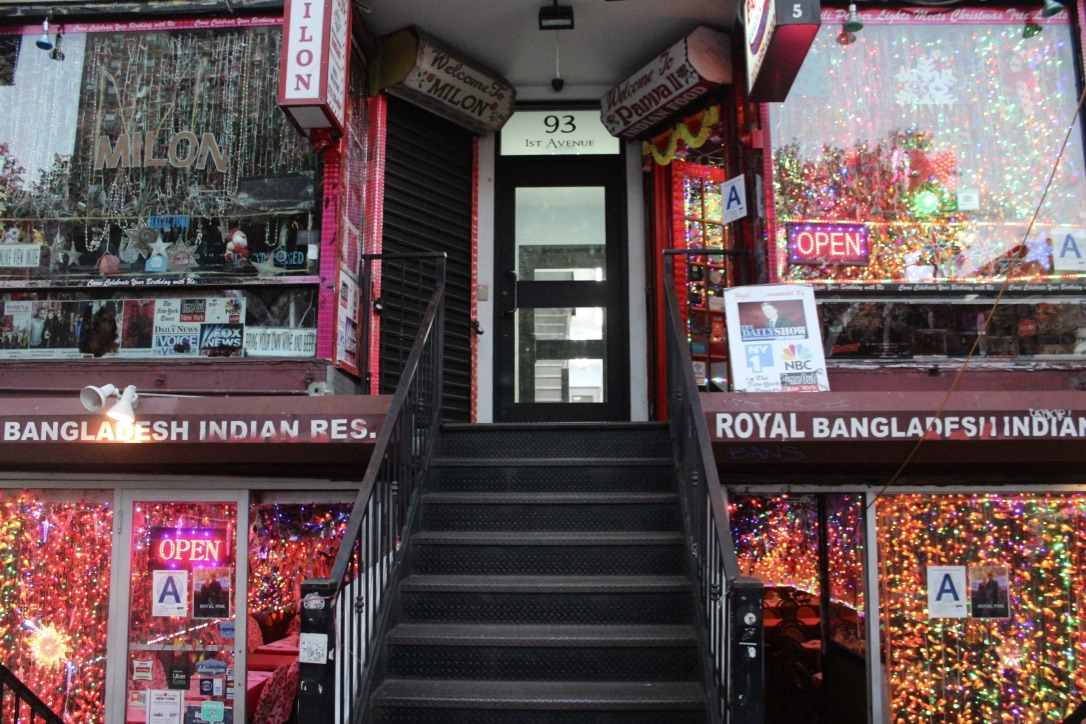
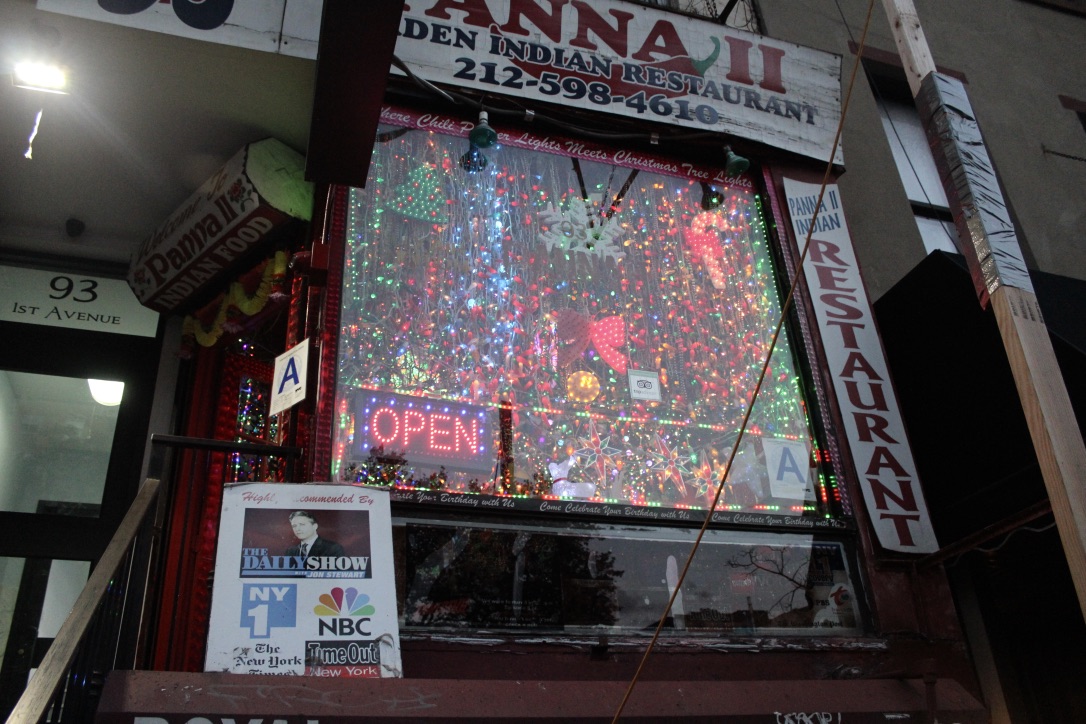
The city is providing 400 code enforcement inspectors to enforce this limit, along with an expanded State Liquor Authority and NYPD task force. Given that there are approximately 10,000 New York City eating establishments reopening their indoor dining, Gov. Andrew Cuomo expects New Yorkers to help enforce the capacity rules.
“Rules are only as good as their compliance. And the compliance is only as good as their enforcement,” Gov. Cuomo said at a press conference on Sept. 9, when he first made the announcement about the return to indoor dining.
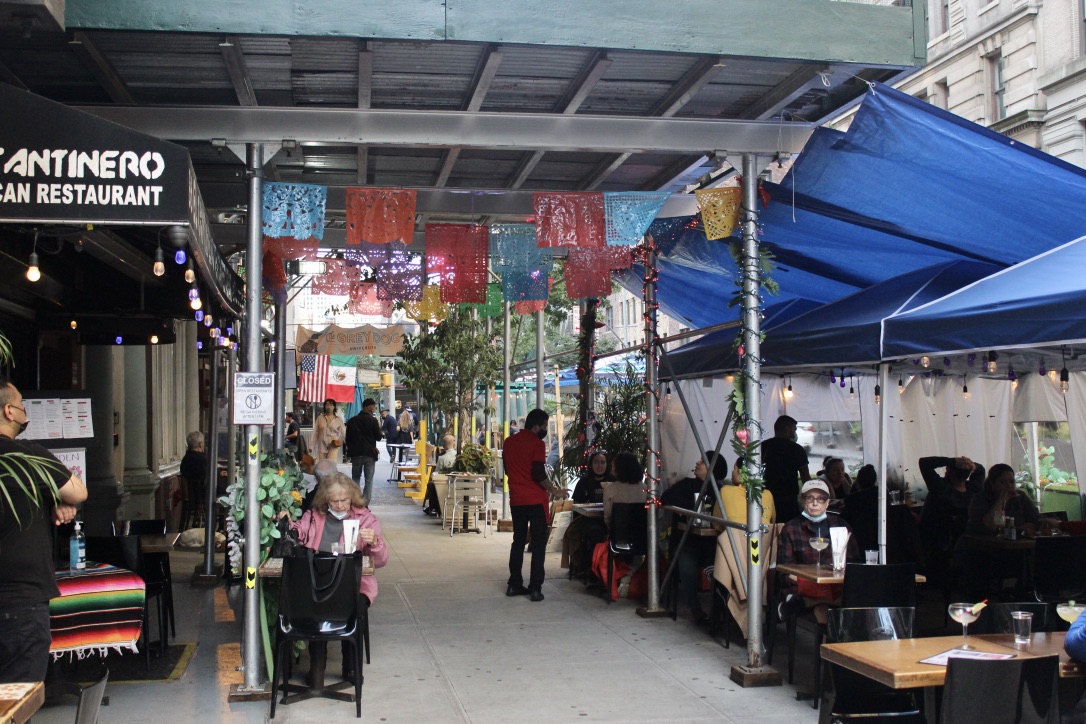
For the sake of keeping New York City safe from the spread of COVID-19, New Yorkers who observe a restaurant violating the 25% capacity limit are asked to call or text the violation to the task force or submit an online complaint form, which alerts the task force to send an inspector to that restaurant. According to Gov. Cuomo, every restaurant must visibly post their 25% dining capacity and the task force phone numbers. All reports will be anonymous.
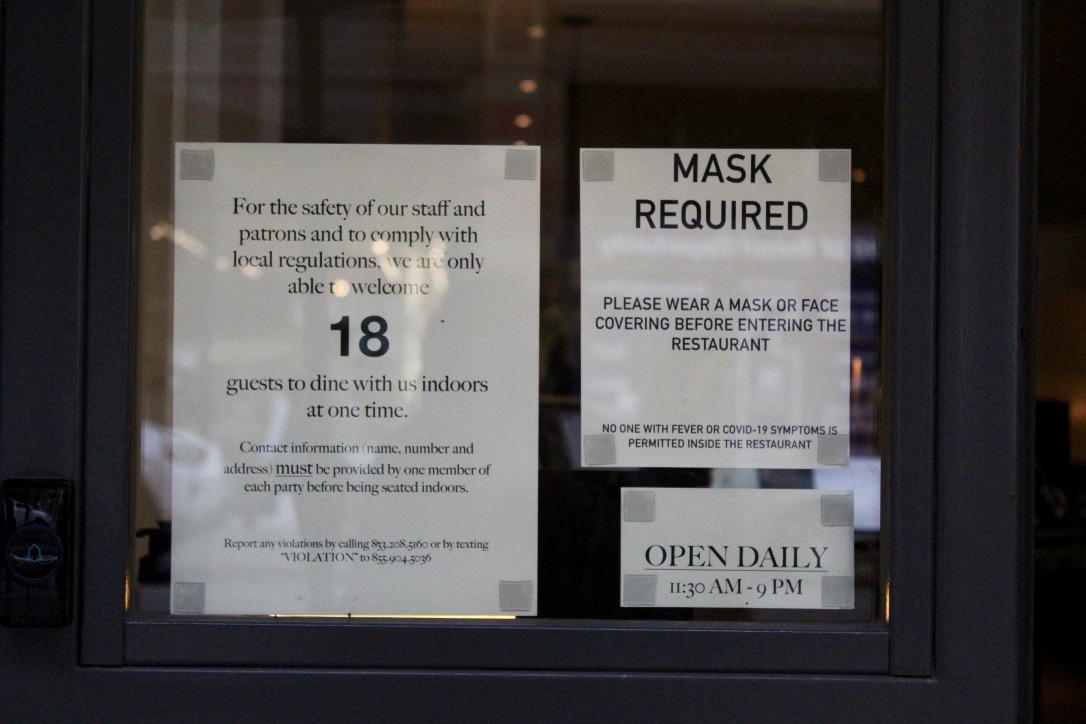
Restaurants opening indoor dining must comply with additional COVID-19 safety guidelines, including: spacing tables six feet apart, conducting temperature checks for every customer and employee, collecting contact information from one customer of each party for COVID-19 tracing data, closing bar top service and complying to other state guidelines such as using enhanced air filtration systems and closing at midnight.
New School students reacted to the new policies. “It’s not other people’s job to do the job of the government. People should just be considerate enough not to do things that do not put other people at risk, ” said Rebecca Mesonjnik, a fourth-year communications and design major at Parsons and former reporter for the Free Press.
“I think that these guidelines, what they are going to do is just take out more small businesses that don’t have the level of staff or don’t have the experience to follow the guidelines,” said Annabelle Schwartz, a fourth-year politics major at Lang, referencing the financial devastation the New York’s restaurant industry has suffered due to the pandemic. “It is going to take them out and I think that is really upsetting.” Schwartz and Mesonjnik do not plan to dine indoors.
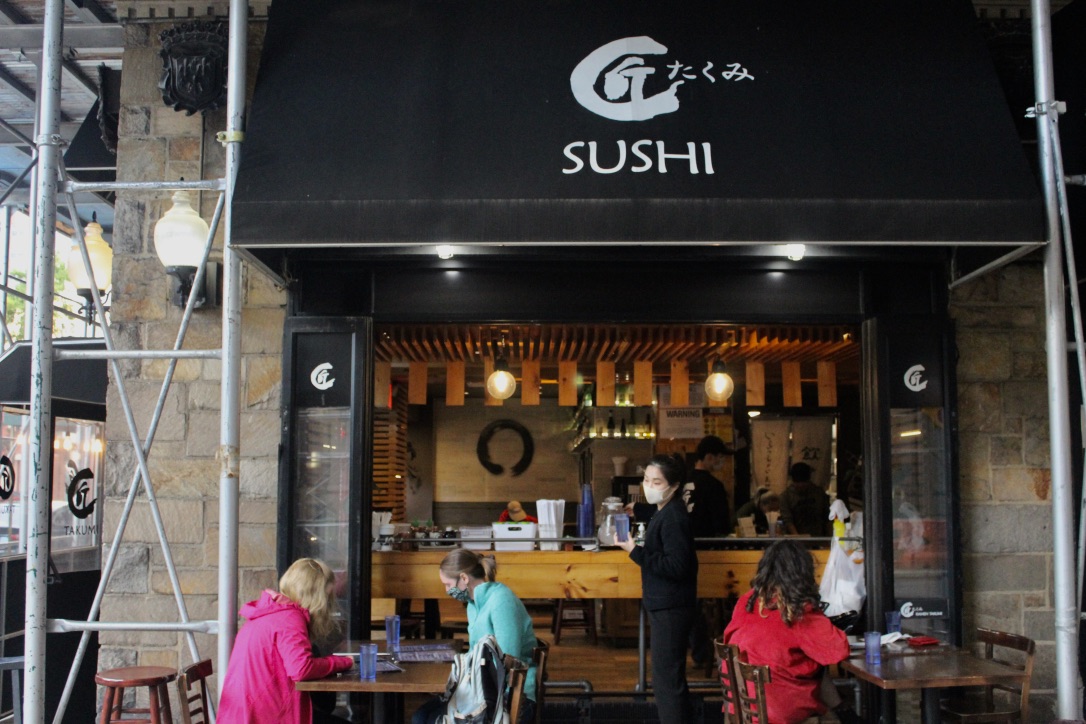
The New York City government will continue to closely monitor case rates through October. Depending on positivity case rates, Gov. Cuomo set Nov. 1 as a check-in date for when restaurants can expand dining capacity to 50%. If there is a spike in infections with no determinable origin — and testing positivity rates have been trending upward in the past week — the state will hit the “emergency pause button” on indoor dining and other reopened activities. Mayor Bill de Blasio wants to do so in 20 zip codes across Brooklyn and Queens which have seen an uptick in cases, yet Gov. Cuomo did not approve his plan to shut down schools and non-essential businesses in nine of the 20 zip codes.
“Restaurants need to continue to make money, because they have people working there that need to eat too and have bills to pay, but I don’t know. We are still in the middle of a pandemic and it doesn’t seem like it is ending any time soon,” said Mesonjnik.

